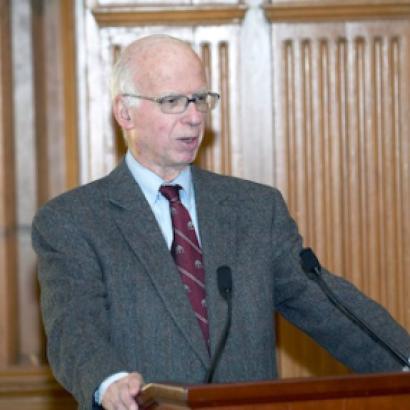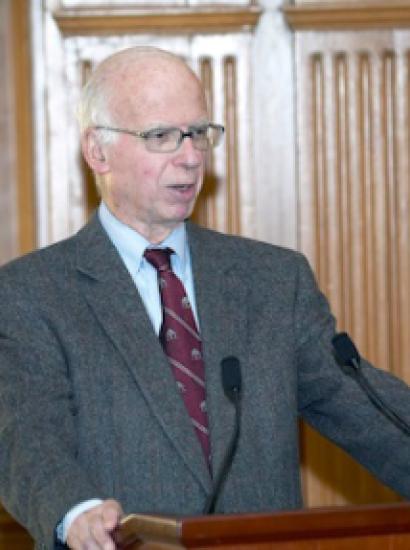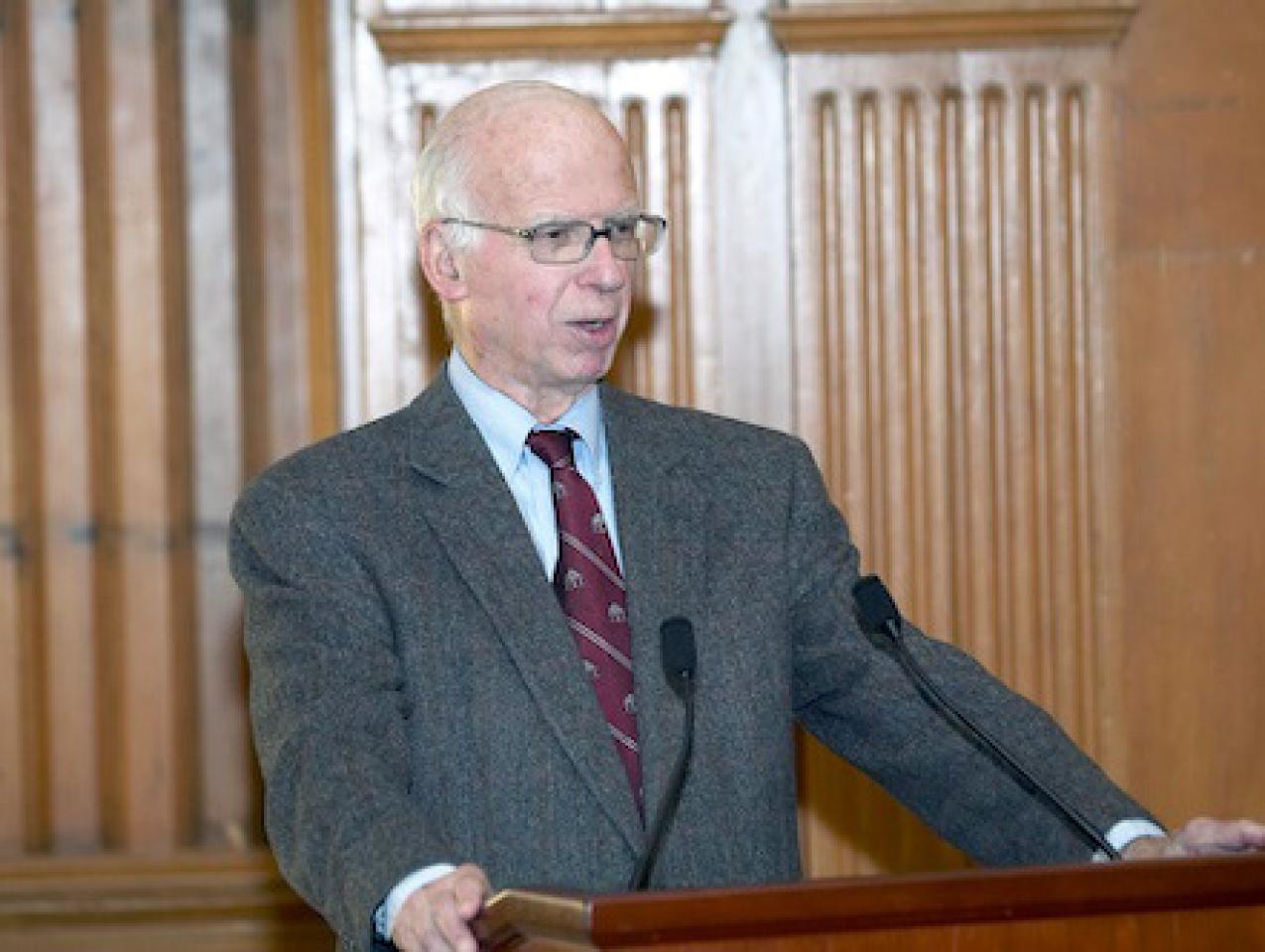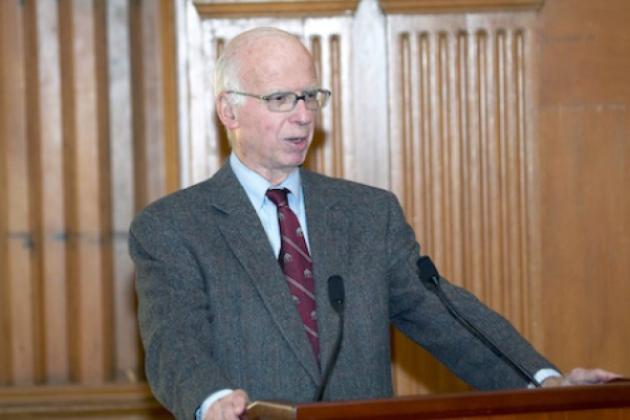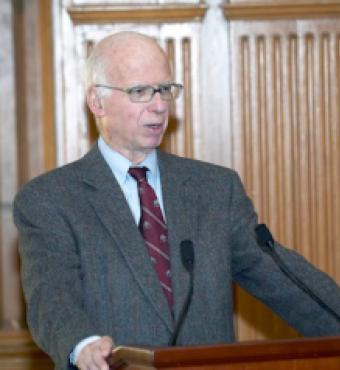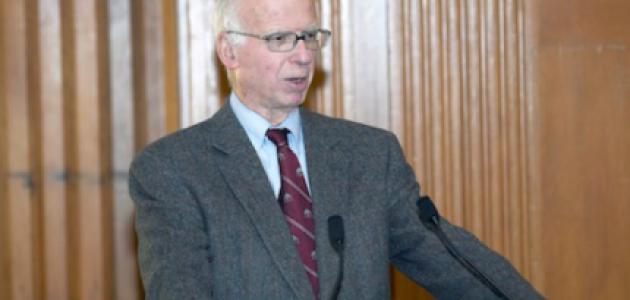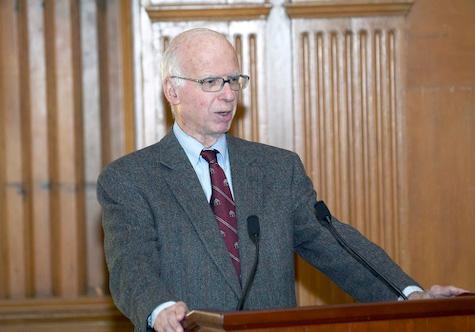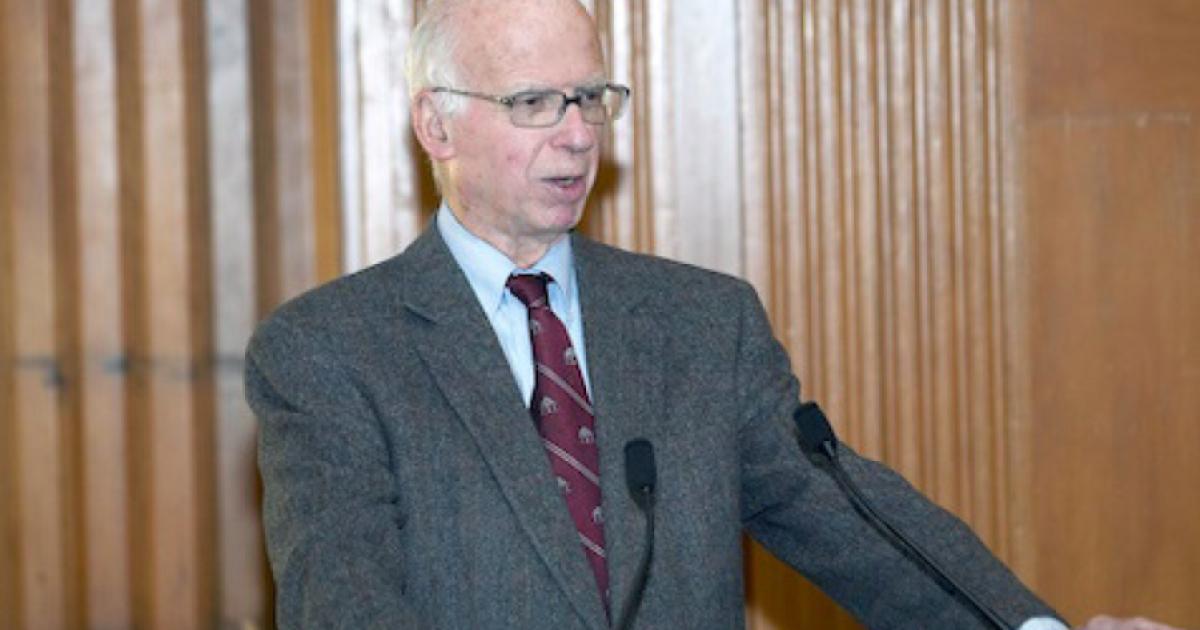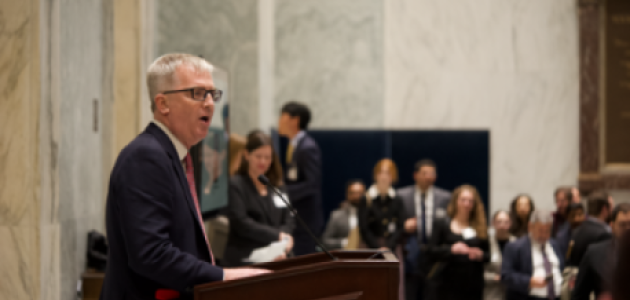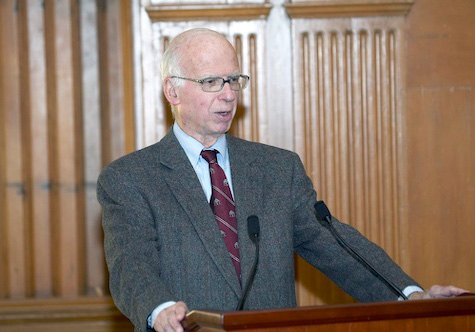
The current presidential race was the subject of a talk by Hoover media fellow David Broder on Thursday, April 3, at Stanford University. “I think that it is very likely to be another of our very agonizing close elections,” said Broder, a Washington Post political columnist and Pulitzer Prize winner. “These are strong candidates—all three of them—who have shown more than once that they can come back from stumbles and setbacks and fight the battle once again.”
Broder said he was struck at the general public’s level of interest, especially that of the youth, in this campaign. In his talk, titled “Election 2008,” Broder reviewed the candidates’ campaigns in each party. He noted that, for all the vagaries of the campaign process, the voters have been smart in winnowing the field of approximately 19 candidates and keeping the quality. He added that American voters may not get all the nuances or have all the details but that their instincts about what to do with their votes, when presented good choices, are good.
On the Republican side, Broder acknowledged that the media had written off Senator John McCain (R-AZ), the presumptive Republican nominee, too early. Each of the other contenders for the Republican nomination had fairly serious downsides, Broder said. “By the time we got to the first of the year it turned out that John McCain had as good a chance as any of them to win the Republican nomination.” Broder noted that McCain’s sheer willpower was important to his success; when others would have given up, McCain persisted. On the campaign trail, Broder detailed points along the way that benefited McCain, including his relationship with voters in New Hampshire, Mike Huckabee’s defeat of Romney in Iowa, Rudy Giuliani’s campaign strategy, and endorsements of key supporters.
According to Broder, among the Democratic contenders, the campaigns of Governor Bill Richardson (D-NM) and John Edwards never got off the ground. “From the beginning, Hillary Clinton sucked up so much of the political oxygen that there was hardly room for any of them to breathe in that race,” he said. At the first of the year, Senator Clinton (D-NY) was seen as the front-runner, he said, adding that the feeling was that it was her time. Many saw the real contest as who would be the alternative to Senator Clinton for the Democrats, said Broder. The success of Senator Barack Obama’s (D-IL) campaign was a “complete surprise to Democrats,” Broder noted. After the success of Obama’s campaign in the Iowa caucuses, Broder said the view of Clinton as the putative Democratic nominee changed and Clinton was seen as being in a fight for her political life. Broder said he wasn’t convinced Clinton could do it but that she showed persistence and did it. After the Democratic primaries are finished, Broder believes Obama will fall short of the 2,024 electoral votes needed to secure the nomination before the convention. In addition, Broder does not believe there is any reason for Clinton to leave the race until the convention.
Currently, Broder believes McCain will be a formidable candidate. He added that the Democratic side, whether it’s Clinton or Obama, it’s clear that the nominee will have a substantial amount of internal repair work to do after this long and occasionally bitter battle, which doesn’t allow for a lot of time to prepare for the general election. Broder suggested that one way to resolve the conflict over the party nomination could be the vice presidential nomination. Although the losing candidate may refuse the position, a conspicuous supporter of his or hers could be offered the position.
Broder, who won the Pulitzer Prize for commentary in 1973, is a 42-year veteran of the Washington Post. Before joining the Post in 1966 as a political reporter, he covered politics as a reporter at the Congressional Quarterly, the Washington Star, and the New York Times. His books include Democracy Derailed: Initiative Campaigns and the Power of Money (2000); Behind the Front Page: A Candid Look at How the News Is Made (1987); The Party’s Over: The Failure of Politics in America (1972); and The Republican Establishment: The Present and Future of the G.O.P. with Stephen Hess (1967).
The Stanford Department of Communications cosponsored the event, part of an ongoing series of seminars sponsored by the Hoover Institution’s William and Barbara Edwards Media Fellows Program.
The Edwards Media Fellows Program allows print and broadcast media professionals to spend time in residence at the Hoover Institution. Media fellows have the opportunity to exchange information and perspectives with Hoover scholars through seminars and informal meetings and with the Hoover and Stanford communities in public lectures. As fellows, they have the full range of research tools Hoover offers available to them. More than 100 of the nation's top journalists have visited the Hoover Institution recently and interacted with Hoover fellows on key public policy issues, including
Julie Tate, Washington Post (in residence March 3–7)
Sheryl Stolberg, New York Times (March 3–7)
Deroy Murdock, Scripps Howard News Service (March 3–7)
Scott Shane, New York Times (March 10–14)
Markos Kounalakis, Washington Monthly (March 10–14)
Mark Leibovich, Washington Post (March 24–28)
Hanna Rosin, Washington Post (March 24–28)
David Plotz, Slate.com (March 24–28)







